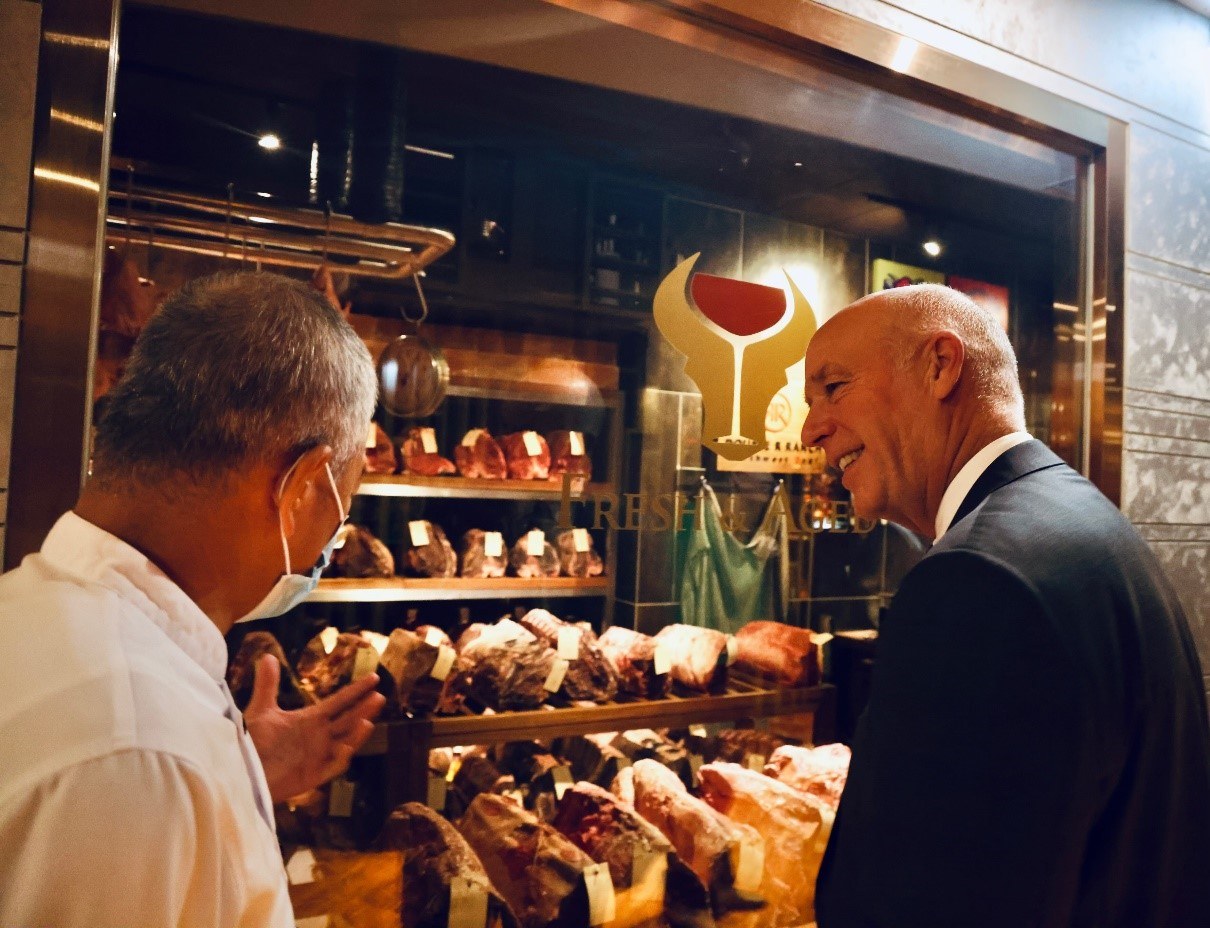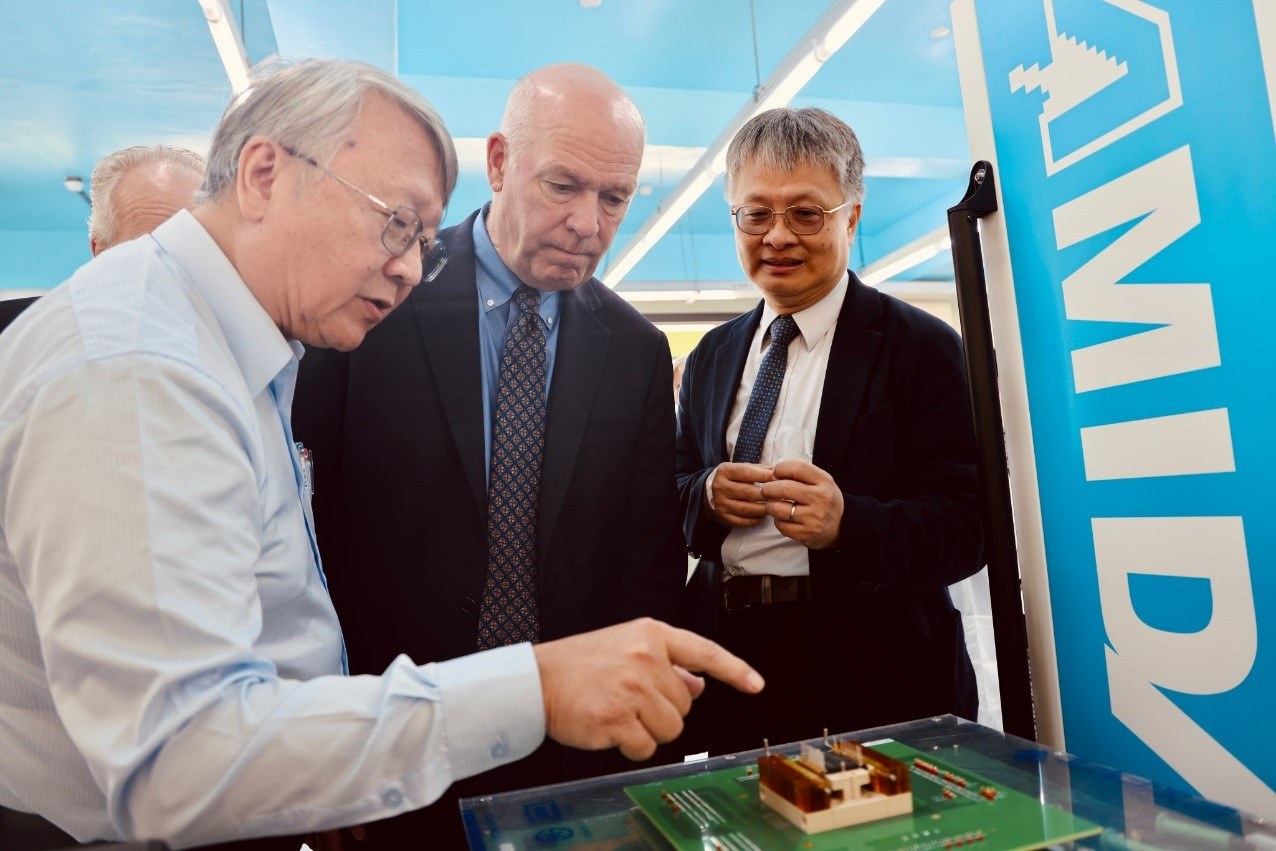On his first international trip in office, Montana Governor Greg Gianforte inked agreements with Taiwan to strengthen ties in agriculture, trade, and educational exchange.
Montana Governor Greg Gianforte recently returned from a visit to Taiwan from October 28th to November 3rd. During this mission, he signed numerous agreements and met with a swath of business leaders and officials, including Taiwanese President Tsai Ing-wen and Executive Yuan Premier Chen Chien-jen, with the aim to strengthen ties between Taiwan and Montana.
Beginning in 1985 with a sister state agreement, Montana and Taiwan have shared a close relationship over the past few decades. For example, the legislature of Montana reinforces the bilateral bond every two years with a joint resolution. Large numbers of tourists from Taiwan, greatly interested in popular attractions like Yellowstone and Glacier National Parks, contributed to the state's economy by spending approximately $7 million during their visits in 2019. Industries in both nations ranging from agriculture to semiconductor manufacturing have historical connections.
Long-term ties facilitated this mission, but it follows a growing significance of the relationship and changing international conditions. For example, Taiwan purchased $107 million in goods from Montana in 2022, making it the state’s seventh-largest trading partner. The bilateral economic relationship is estimated to support 515 jobs in Montana.
To capitalize on these increasing connections, in 2021, the Montana Asia Trade Office – first established in 1988 to encourage new business opportunities for Montana – was reopened in Taipei by Governor Gianforte. The physical facility was closed in favor of virtual offices in 2012 by then-Governor Brian Schweitzer due to stated concerns over the expense in keeping it open.
However, the decision to close it occurred with little consultation from the business community or political leaders of Taiwan. Some speculated the closing of the office was linked to then-Governor Schweitzer's initiative to attract foreign capital from China.
Such a situation would be hard to find in the present climate, whereas in the past few years, the economic relationship between the United States and China has broadly deteriorated. It has been marked by shrinking investment, trade restrictions such as export controls, and increased tensions over issues like intellectual property rights. This is in sharp contrast to relations with Taiwan, where economic cooperation in critical areas such as semiconductor manufacturing and digital trade has skyrocketed. Reflected at the subnational level, governors from New Jersey, Michigan, New Mexico, and Virginia have all either visited Taiwan or established trade offices within the country to capitalize on these changing conditions.
Similarly, Governor Gianforte has taken steps to reinforce and increase ties with Taiwan through this trade mission. Notably, his agreements centered around agricultural connections and critical and emerging technologies.
Taiwan and Montana’s Agricultural Assets
Montana’s agricultural industry is the state’s number one industry worth $5 billion and responsible for over 30,000 jobs. The state ranks second in the nation, behind Texas, in terms of agricultural land use, dedicating 62% of its territory to farms and ranches encompassing millions of acres. Exports from the industry totaled around $1.5 billion in 2021, whereas approximately 80% of its wheat crop is shipped overseas. Such agricultural output has immense interest from Taiwan, as the country imports about 70% of its food with around 22.8% of that total coming from the United States in 2022.
Agricultural ties between Montana and Taiwan have notably strengthened in recent years. For example, in 2022, Montana, being the third-largest exporter of wheat in the United States, shipping wheat worth $32 million and beef valued at $16 million to Taiwan. In 2022, the United States was the primary destination for Taiwanese agricultural exports, which amounted to around $910 million in value, with many of these products being shipped to Montana.
Considering that wheat consumption surpassed rice and beef consumption is at an all-time high in Taiwan, a huge motivation of Governor Gianforte’s trip was to shore up these aforementioned agricultural connections through meetings and visits to important locations. For instance, a delegation that included members from the Montana Farm Bureau toured Taiwan's most advanced flour mill, the Top Food Industry Corporation, as well as Taichung Port, which serves as the key entry point for grain imports from the United States. In another visit earlier this year, Taiwanese flour milling industry representatives came to Montana for discussions and to connect with local leaders.

Image of Governor Greg Gianforte touring Mayfull’s steak aging facility (Source: Montana Governor’s Office)
Likewise, the segment of the trip centered around beef included a visit to Mayfull Aging Facility – one of the largest importers of high-end beef in Taiwan – and a tour of the Taiwan Livestock Research Institute. It concluded with a networking dinner meant to facilitate a beef supply chain from Montana to Taiwan.
Emerging Technologies and Educational Exchange in Taiwan and Montana
Montana ranks sixth for bioscience industry growth and has one of the highest per capita concentrations of quantum, photonics, and optics companies in the United States. Photonics and optics involve the study and application of light, encompassing its generation, detection, and manipulation through lenses, mirrors, and other devices. It also ranks fifth in the nation for growth in research and development expenditures. This prowess is set to expand, as the state will receive $450,000 and the opportunity to compete for millions in federal and private grants after designation as a Regional Tech Hub under the CHIPS and Science Act.
Taiwan boasts an advanced high-tech sector. For example, the photonics industry ended the first half of 2021 with a value of around $26 billion – an annual increase of 26.4%. Similarly in 2021, Taiwan passed the Development of Biotechnology and Pharmaceutical Industries Act to develop precision medical treatment, prediction, and prevention technology. As a result of this effort, the annual revenue of the bioscience industry in Taiwan increased by 10.9% in that year, reaching a decade peak of $24 billion.
The bilateral strength of the respective technology sectors, particularly in the bioscience, computing, and photonics industries, made shoring up cooperation a core component of Governor Gianforte’s international visit.
Corresponding with this motivation, Bozeman-based Quantum Composers entered a new Memorandum of Understanding (MoU) with Hua Laser Electro-Optics Co. Likewise, the Montana Photonics and Quantum Alliance entered a different MoU with the Taiwan US Industrial Promotion Office. Another MoU involved the Montana Department of Commerce and the Importers and Exports Association of Taiwan (IEAT). The hope is that this economic collaboration will expand current ties in these sectors and others, boosting exports from Montana to Taiwan such as semiconductor machinery – the second largest export to the country.

Image of Governor Greg Gianforte touring Minghsin University of Science and Tech (Source: Montana Governor’s Office)
Related to these desires, there have also been agreements to build the next generation of cross-cultural leaders across these sectors. For example, Montana Tech and Minghsin University of Science and Technology (MUST) in Hsinchu, Taiwan agreed to an MoU in 2022. As a result of this, during the summer of 2023, students traveled to Taiwan to learn about semiconductor manufacturing, Taiwanese culture, and fundamental Chinese language skills.
To expand on this cooperation and the success of the study abroad program, Governor Gianforte announced an MoU between the Montana Office of the Commissioner of Higher Education and the Taiwan Ministry of Education to create a Mandarin language program at the Mansfield Center – an organization located within the University of Montana dedicated to providing language and learning opportunities revolving around Asia for high school and college students. In addition to this, the agreement will help facilitate further short-term exchanges between Montana Tech and MUST.
These bilateral agreements and strategic high-level meetings underscore the shared ambition of Montana and Taiwan to broaden their international influence and adapt effectively to emerging economic and political realities. The hope is this cooperation will sustain and grow, bearing fruit for the citizens of both nations.
Matthew Willis is a Young Professional at the East-West Center in Washington. He is an undergraduate student at the University of Texas at Austin, majoring in International Relations, Economics, Government, and East Asian Studies.